-
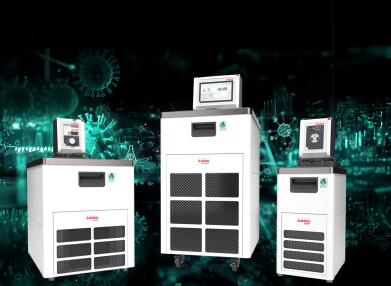 Reproducible results in laboratory work require the use of state-of-the-art laboratory devices.
Reproducible results in laboratory work require the use of state-of-the-art laboratory devices. -
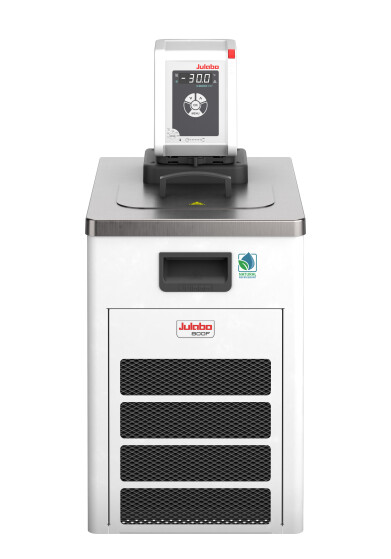 New energy-efficient refrigerated circulator CORIO CP-800F.
New energy-efficient refrigerated circulator CORIO CP-800F. -
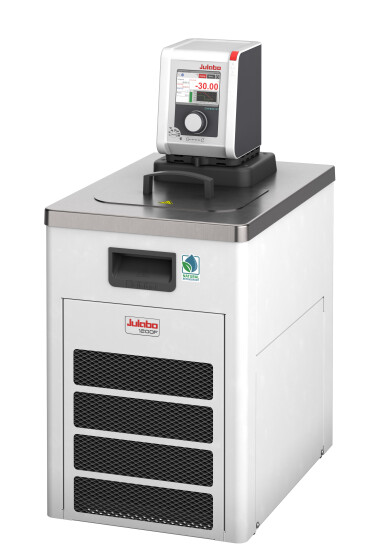 New energy-efficient refrigerated circulator DYNEO DD-1200F.
New energy-efficient refrigerated circulator DYNEO DD-1200F. -
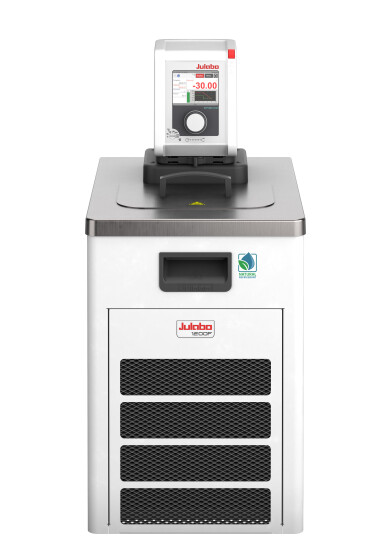 New energy-efficient refrigerated circulator DYNEO DD-1200F.
New energy-efficient refrigerated circulator DYNEO DD-1200F. -
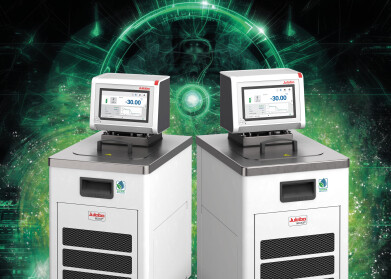 The new energy-efficient refrigerated circulators MAGIO MS-800F and MAGIO MS-1200F.
The new energy-efficient refrigerated circulators MAGIO MS-800F and MAGIO MS-1200F.
Temperature Control / Sterilising
Temperature control in the pharmaceutical industry: Vaccine research in focus
Aug 22 2024
Reproducible results in laboratory work require the use of state-of-the-art laboratory devices. Vaccine research therefore relies on temperature control solutions from Julabo. The devices create defined conditions for cell culture and sample preparation.
Biotechnology can solve many of today’s challenges. The spectrum ranges from the development of procedures for wastewater treatment and sustainable plastics to the development and production of highly effective pharmaceutical substances.
Scientists involved in vaccine research are dedicated to combating infectious diseases. Tetanus, diphtheria or poliomyelitis: These are well-known examples of diseases that have lost their horror as a result of scientific progress. There are also new diseases such as hospital germs and bacteria that develop resistance to antibiotics.
Manufacture and development of vaccines
Vaccine research plays a special role in the control of health risks. In future, epidemics or pandemics will only be able to be prevented by improving the supply of vaccines. For this, ongoing research is needed into new vaccines. This is due to the ability of already known pathogens to mutate and the occurrence of new diseases. Based on this, the key question for scientists is: Which vaccine can protect the human immune system from the detected pathogen? Vaccine candidates must first demonstrate their efficacy in in vitro assays. For this purpose, human immune cells are cultured under defined conditions and incubated with the antibodies.
Improving production capacity is just as important as research into pathogens and effective vaccines. Only a uniform distribution of vaccination options across the population can avoid the global spread of infectious diseases. This requires not only economic and political efforts, but also a significant increase in technical capacities for vaccine production. That’s why specialists are exploring new, more efficient procedures for the cultivation of vaccines.
Let’s take the production of vaccines against influenza as an example: Vaccination capacity against the virus is limited. This is due, among other things, to limited scalability of the predominant manufacturing processes. However, scientific efforts have already made great progress in this area.
Production of the influenza vaccine using cell cultures is becoming increasingly established.
Here, the virus in the bioreactor multiplies in human or animal cells. The aim is to also use this production technology to manufacture many more vaccines.
Importance of temperature control solutions for cell culture
Laboratories focus on the basic principle of the biotechnological process: Cell growth and cell division. The cells of the virus multiply based on the cultivation conditions in the bioreactor. In turn, the creation of defined conditions is of crucial importance for cell culture. This applies to the testing of procedures in the laboratory as well as to subsequent production in large quantities.
The desired strategy for process management is one that maximises the virus yield of the procedure. Various microcarriers are used to provide the viruses with a growth surface. However, various nutrient fluids also need to be tested. Together with pressure and pH values in the bioreactor, this results in a considerable number of degrees of freedom. Precise temperature control of the cell culture and the laboratory devices used is just as important.
Temperature control instruments contribute to optimal results throughout the whole microbiological process. Laboratory employees use water baths to prepare cell material for testing. They also temperature control samples and laboratory devices to avoid temperature bias in experimental results. Circulators constantly maintain the setpoint temperature in the bioreactor, at which cell growth and cell division proceed optimally. Because exact adherence to the target conditions is essential for meaningful results, the circulators can also counter-cool.
The CORIO, DYNEO and MAGIO series cover a wide range of laboratory applications. These include heating immersion circulators for existing containers and heating circulators with integrated bath. The Julabo refrigerated circulators are used for temperature control of external applications such as reactors.
Julabo refrigerated circulators from the CORIO, DYNEO, and MAGIO series are known for their premium quality, flexibility, and performance as well as their impressive efficiency. The newly developed 800F and 1200F cooling machines work with natural, environmentally-friendly refrigerant and were designed with a focus on energy efficiency. This means significant savings with respect to the operating costs for numerous applications, which also means faster amortisation of the procurement cost. At the same time, their lower energy consumption helps to protect the environment.
More information online
Digital Edition
Lab Asia 31.6 Dec 2024
December 2024
Chromatography Articles - Sustainable chromatography: Embracing software for greener methods Mass Spectrometry & Spectroscopy Articles - Solving industry challenges for phosphorus containi...
View all digital editions
Events
Jan 22 2025 Tokyo, Japan
Jan 22 2025 Birmingham, UK
Jan 25 2025 San Diego, CA, USA
Jan 27 2025 Dubai, UAE
Jan 29 2025 Tokyo, Japan
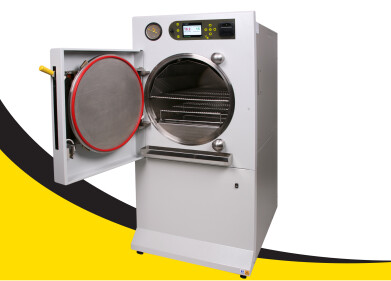
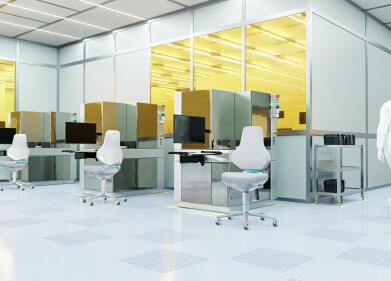
.jpg)
.jpg)














